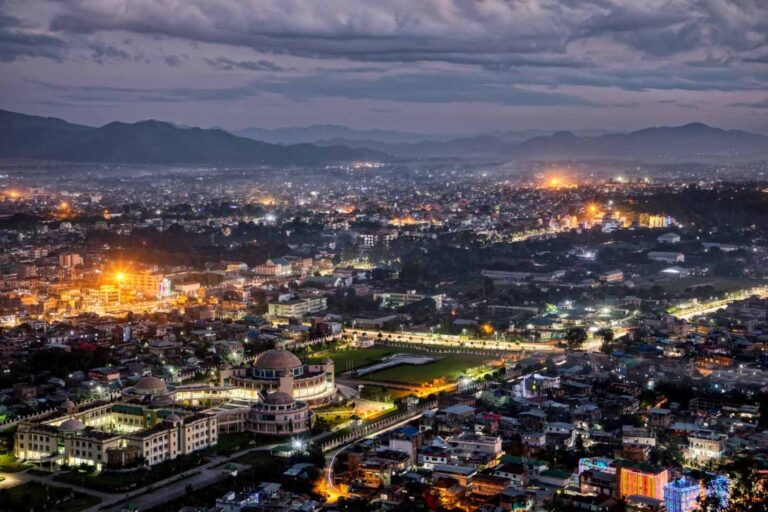Permanent Mediation Centre in Imphal: A Step Towards Justice and Peace in Manipur
Short Summary
The Chief Justice of Manipur recently inaugurated a permanent mediation centre in Imphal, marking a significant step towards strengthening the judicial system in the state. This initiative aims to address the increasing number of disputes by offering mediation as an alternative to lengthy court trials. Mediation is seen as a way to resolve conflicts efficiently and peacefully, benefiting the local community by reducing the burden on courts and fostering a culture of dialogue.
Introduction
The legal landscape in India, especially in states like Manipur, has been characterized by an overwhelming number of unresolved cases and a sluggish pace of justice. The inauguration of a permanent mediation centre in Imphal promises to ease some of this strain, introducing a vital tool for dispute resolution that prioritizes communication, negotiation, and mutual understanding.
Manipur has seen its share of conflicts, both civil and criminal, and the establishment of a mediation centre is a beacon of hope for fostering peace through dialogue. The centre is designed to serve as a platform where conflicting parties can come together, guided by trained mediators, to resolve their issues outside the courtroom. It is an alternative that promotes harmony, saves time, and reduces litigation costs, which is something everyone in the community can appreciate.
But what exactly is mediation, and how does it differ from the traditional court system? How does this new initiative align with the needs of Manipur, and what are its potential benefits?
Let’s break it down.
What is Mediation?
Mediation is a process in which a neutral third party, known as a mediator, facilitates communication between disputing parties to help them arrive at a mutually agreeable solution. Unlike court trials, mediation is non-adversarial, meaning that it’s not about winning or losing. Instead, it focuses on finding a resolution that satisfies both sides. It’s a process that emphasizes collaboration over confrontation.
This form of dispute resolution is particularly appealing in a place like Manipur, where personal and community relationships are tightly woven into the social fabric. Traditional court battles often exacerbate tensions, leading to more division rather than mending fences. Mediation, however, fosters cooperation and mutual respect, aiming to restore relationships rather than damage them further.
Why a Permanent Mediation Centre in Manipur?
The introduction of a permanent mediation centre in Imphal is a strategic and much-needed response to the region’s unique challenges. There are several key reasons why this initiative is a game-changer for the state:
- Heavy Caseload in Courts: Like many parts of India, Manipur’s courts are overburdened with pending cases, some of which have been unresolved for years. This backlog not only delays justice but also places immense pressure on the legal infrastructure. A permanent mediation centre provides an alternative route for resolving disputes, helping to alleviate the burden on the judiciary.
- Fostering Community Peace: Manipur has experienced its share of social and political unrest. Conflict resolution through mediation offers a way to address grievances peacefully, helping to reduce tensions and build a more harmonious community.
- Time and Cost Efficiency: Traditional court cases can drag on for years and involve substantial legal fees. Mediation, on the other hand, tends to be quicker and less expensive, making it accessible to a broader segment of the population. By resolving disputes early, individuals can avoid the prolonged emotional and financial toll of court battles.
- Promoting Alternative Dispute Resolution (ADR): India’s judiciary has been advocating for alternative dispute resolution methods like arbitration, mediation, and conciliation for years. The establishment of the mediation centre in Imphal aligns with this national vision, reinforcing the importance of ADR in creating a balanced justice system.
The Role of the Chief Justice in Driving Change
The Chief Justice of Manipur has been instrumental in bringing this initiative to life. During the inauguration of the mediation centre, the Chief Justice emphasized the need for accessible, speedy, and cost-effective justice for all. By championing the cause of mediation, the Chief Justice is not only addressing the inefficiencies within the judicial system but also encouraging a more peaceful way of resolving disputes.
The Chief Justice’s support for this initiative underscores a broader commitment to transforming the way justice is delivered in Manipur. The mediation centre is not just a standalone project; it is part of a larger vision to make justice more inclusive, efficient, and community-centered.
How Will the Mediation Centre Operate?
The permanent mediation centre will function with a dedicated team of trained mediators who will work on a variety of cases, including family disputes, commercial conflicts, property disagreements, and even certain criminal matters. These mediators are skilled in facilitating dialogue and finding common ground between opposing parties.
Here’s a breakdown of how the process typically works:
- Case Identification: Parties with disputes are referred to the mediation centre either voluntarily or by the court. Once both parties agree to mediation, the process begins.
- Introduction of Mediators: A neutral mediator is assigned to the case. The mediator’s job is to guide the conversation, ensure that both sides are heard, and help them explore possible solutions.
- Facilitating Dialogue: Through open communication, the mediator helps the parties understand each other’s perspectives. This is done in a non-confrontational setting, promoting cooperation.
- Negotiating a Solution: After discussing the issues, the mediator encourages the parties to negotiate a mutually agreeable resolution. This agreement is then formalized and can be enforced like a court order.
- Final Resolution: If a resolution is reached, the dispute is settled without further legal action. If mediation fails, the parties can still pursue their case in court.
Benefits of Mediation for Manipur
The mediation centre offers several key benefits that make it a valuable addition to Manipur’s justice system:
- Reduces Court Congestion: By resolving disputes outside of court, mediation helps to reduce the burden on the judiciary, allowing courts to focus on more serious cases.
- Preserves Relationships: Mediation is less adversarial than litigation, meaning that it’s more likely to result in outcomes that preserve personal and business relationships. This is especially important in close-knit communities where relationships are valued.
- Encourages Swift Resolutions: Mediation tends to be quicker than traditional court cases, which can drag on for years. The faster resolution allows people to move on with their lives more quickly.
- Cost-Effective: Since mediation is less formal than a court trial and involves fewer legal fees, it’s a more affordable option for many people.
- Confidentiality: Unlike court cases, which are a matter of public record, mediation proceedings are confidential. This is appealing to those who prefer to keep their personal or business matters private.
The Future of Dispute Resolution in Manipur
With the establishment of the permanent mediation centre in Imphal, Manipur is setting a new precedent for how conflicts can be resolved. This initiative is not just about reducing court backlogs; it’s about promoting a culture of peace and cooperation in the state.
As more people become aware of the benefits of mediation, it’s likely that this method of dispute resolution will become more popular. This could lead to a ripple effect, with other states in India considering similar initiatives to improve their own judicial systems.
The permanent mediation centre in Imphal is a step towards a more compassionate and efficient justice system—one that prioritizes dialogue, understanding, and resolution over conflict.
FAQs
- What is the main purpose of the mediation centre in Imphal? The mediation centre aims to provide an alternative method of dispute resolution, focusing on peaceful negotiation rather than lengthy court trials.
- How does mediation differ from traditional court cases? Mediation is a non-adversarial process where a neutral mediator helps disputing parties reach a mutually agreeable solution, while court cases are often confrontational and result in a win-lose outcome.
- What types of disputes can be resolved through mediation? Mediation can handle a wide range of disputes, including family matters, property disagreements, business conflicts, and even some criminal cases.
- Who can act as a mediator? Mediators are trained professionals who facilitate communication between conflicting parties. They are neutral and do not take sides.
- Is mediation legally binding? If both parties reach an agreement through mediation, it can be formalized into a legally binding settlement, enforceable by law.



